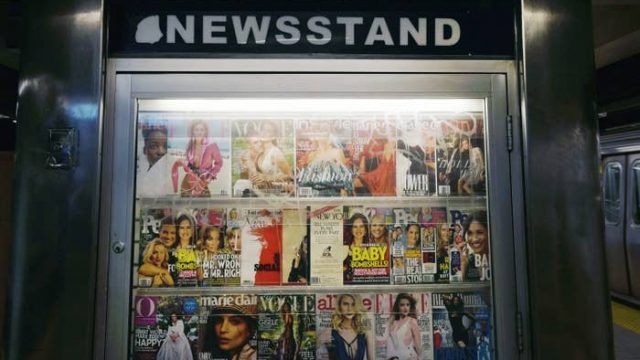Happy post-Christmas/Solstice, my dearies! Did you have a good one? Anyways, on with the articles….
On the 20th, Mehera Bonner of Marie Claire, gifted us with a list of the best porn movies of all-time:
“The best and most arousing porn films are often the ones that involve drama, relationships, and, ya know, things other than HD penises on the screen. But sometimes they can be hard to find. (Pun intended…?) In an effort to be helpful and sex positive, we’ve rounded up the best full-length porn movies—with ethical standards, feminist values, pretty cinematography, and good music to boot.”
Also on the 20th, Halley Sutton looks at why The Godfather became a holiday classic, for Crime Reads:
“There’s something cathartic about seeing Sonny Corleone (RIP) stomp the ever-loving shit out of Carlo Rizzi while your entire family gathers at the table and reenacts the dynamics of your childhood. Just kidding, Mom! Mostly just kidding. But for those of us getting a little irritated after a few days in close quarters, a little vicarious cinematic violence is just what we need to keep the peace.”
Kelly Faircloth of Jezebel, talked to Nicholas Daly, Professor of Modern English and American Literature at University College Dublin, about at the origins of the many Christmas Prince TV movies, on the 23rd:
“History has no place in these. At the same time, you know, it’s that weird fetishization of history and tradition and castles, at the same time that actual history swept away and not seen to be in any way relevant. I guess they’re the castles of the fairytales rather than the castles out of the medieval or feudal past. They’re curiously historyless.”
Also on the 23, Alan Sepinwall said “goodbye, friend” to Mr. Robot, in a Rolling Stone review full of spoilers:
“Evil(Corp) is vanquished, the world is saved several times over, but Mr. Robot mainly cares about saving Elliot and Darlene Alderson. And the series finale does that splendidly. It’s ultimately a smaller story than the show seemed to be telling when it started, but that’s what happens when you have a narrator as unreliable — albeit rivetingly so — as Elliot.”
Anna Flaherty explored the work of Gaspar Noe for 25 Years Later, also on the 23rd:
“Weaving together these three key components, in both films, contribute to the unflinching view of violence and sexuality that Noe portrays. His willingness to show violent acts in their brutality explains the fascination of his audiences, as they simply cannot look away. The starkness in his direction is still very far away from the mainstream treatment of violence, and this new outlook provides an ongoing tension throughout his films, which ensures his viewers are consistently entertained (if a little terrified).”
Finally, on the 26th, Ann Helen Peterson of BuzzFeed, explained how celebrity gossip changed in the 2010s
“Sure, celebrity profiles are far less interesting, and celebrity trainwrecks have been replaced by the trainwreck of American politics and an ever-growing number of scammy influencers. But when I look back at the peak of the ’00s gossip area, and the abject thrill of every new picture of Britney breaking down, I remember that the gossip had never been better — but it never made anyone, least of all Spears herself, feel good. Gossip has always allowed us to speak the otherwise unspeakable, working through understandings of sex and femininity and sexuality in a space ‘distant’ from our own. But the power of the paparazzi in the ’00s, and the relative powerlessness of the stars, drove home a difficult truth: No matter how much distance between us and the stars, the intimacy we crave has very real psychological costs, especially when extracted without consent.”
Enjoy!

